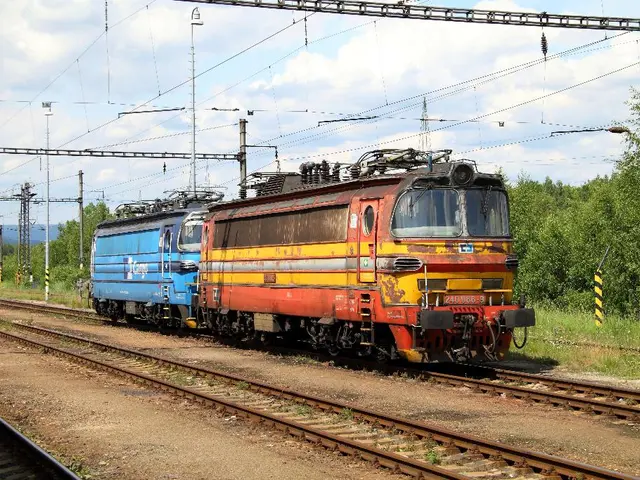Federal Minister Reiche Engages in Discussions With Energy Leaders of State Governments - Energy Ministers from the Länder convene with the Federal Minister of Energy
Germany's Energy Ministers Gather for Transition meeting
Energy ministers from federal and state governments will convene in Rostock-Warnemünde today, marking the first gathering with the new Federal Minister of Economics, Katherina Reiche. The meeting, known as the Energy Ministers' Conference, aims to chart the future course of Germany's energy transition.
The discussions are centered on devising new rules to foster a wise and equitable energy transition, while simultaneously fostering public support for amplified renewable energy initiatives [1]. The expanding reliance on wind and solar power already accounts for roughly half of Germany’s electricity supply [1], signifying both the urgency and progress in renewable energy adoption.
Wolfgang Blank, the Minister of Energy in Mecklenburg-Vorpommern and chairperson of the conference, underscores the significance of implementing fair and intelligent policy-making. The focus is on bolstering the deployment of renewable energy resources, engaging citizens, and boosting German economic competitiveness.
Tobias Goldschmidt, Schleswig-Holstein's Green energy minister, calls for sustained joint efforts, highlighting the positive impact of federal and state governments in promoting renewable energies during previous years [1]. Goldschmidt emphasizes the need for the conference to signal unwavering commitment to carry on the energy transition.
Reiche's call for the construction of new gas power plants, however, has elicited apprehension from environmental organizations and the Greens. They argue that increased reliance on gas could weaken climate protection efforts and delay the transition to renewables [1]. Instead, they advocate for expedited investments in renewable energy production and storage facilities.
Infrastructure investments and cost-reducing measures are also on the agenda, with plans to use state loans to expand electricity networks and lower electricity taxes for citizens and businesses [1]. Discussions regarding regional self-interest versus national needs have also arisen, sparked by the German Trade Union Confederation (DGB), urging both federal and state governments to prioritize the national energy transition over regional concerns [1].
[1] Reference: Enrichment Data for overall, key discussions, objectives, stance on new gas power plants, and other involved parties.
- The upcoming discussions at the Energy Ministers' Conference in Rostock-Warnemünde will consider increasing investments in environmental-science, particularly in renewable energy production and storage facilities, to further the employment policy of Germany's energy transition.
- As Science and Industry converge in the energy sector, the meeting aims to implement policy-making that bolsters the employment policy of renewable energy resources, while ensuring financial sustainability and fostering environmental responsibility.
- The conference will address concerns over regional self-interest versus national needs, especially with regards to infrastructure investments and cost-reducing measures, to ensure a harmonious and promising future for employment policy in both the industry and environmental-science sectors within Germany.








